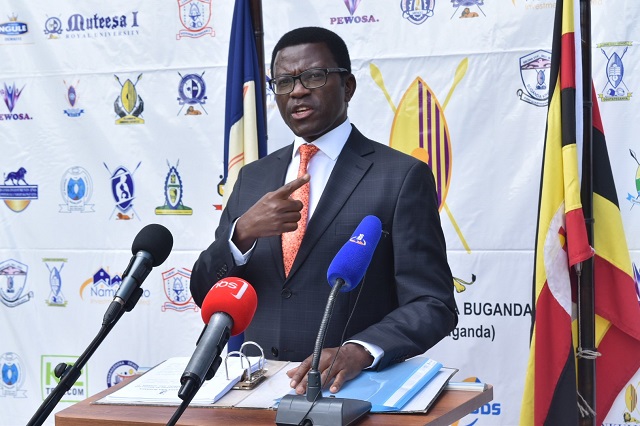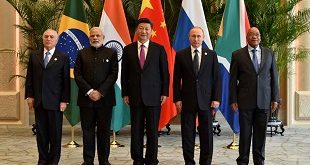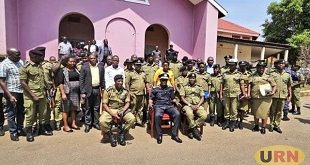
Kampala, Uganda | THE INDEPENDENT | As the Kabaka of Buganda Ronald Muwenda Mutebi II marks his 28th coronation anniversary today, his kingdom is yet again bracing itself for another showdown with President Yoweri Museveni’s government. Like it has been in most of the previous confrontations, land is at the centre of the simmering clash.
For about two years now, President Museveni has been calling as evil the Mailo land tenure system which is prevalent in Buganda. The abolition of Mailo was also one of the recommendations by the Justice Catherine Bamugemereire led Commission of Inquiry on land.
While meeting then Members of Parliament Elect subscribing to his National Resistance Movement (NRM) in April at Kyankwanzi, Museveni said one of the things he aims at achieving during this term is to see an overhaul of the land laws. “Landowners should be entitled to full ownership of their land like elsewhere in Uganda. In Ankole, nobody can chase you away from your land. You even fear…”
Other than the Mailo land tenure system, Museveni also wants to see an amendment to article 26 of the constitution that prohibits the compulsory acquisition of property before prompt payment of fair and adequate compensation to its owners. The government tried and failed to push through this amendment in the 10th parliament as there was consensus among MPs that it was a bad proposal.
New ministers
Museveni’s resolve to push through these amendments were even made more clear in his choice of the ministers of Land.
Judith Nabakooba the senior minister has been praised variously by Museveni for fighting land evictions in her district of Mityana where she once served until May as the woman member of parliament. She also served as a senior police officer at the rank of Commissioner of Police, now serving the same commander in chief as when she was in uniform.
But Museveni’s intensions are more stark in the appointment of Sam Mayanja as the Minister of State for Lands. Mayanja who is a senior partner at Kampala Associated Advocates, probably caught the president’s eye through his column in the government owned New Vision newspaper.
In several of his writings, Mayanja has used language similar to that of the President to describe the Mailo land tenure system.
In one of those writings, Mayanja describes the 1900 Buganda Agreement that distributed land in the kingdom as the darkest day in the history of Uganda where the largest majority of the people became landless at the hands of a tiny political elites.
“Out of a population of close to one million people, only 3,700 were allocated land and the rest remained landless’,” writes Mayanja. “They held bibanja at the mercy of both the newly created Mailo landed aristocratic owners, and the Uganda Protectorate Government whose Crown land was really intended for alienation to non-Ugandans. The eviction of muntu wa wansi (peasants) from his kibanja removes the only security he has been holding on since 1900. The ownership of the kibanja had over the years offered him the ultimate security.”
Mayanja adds that therefore, when President Museveni proclaims that the time has come to give ownership in perpetuity to peasants on their bibanja tenure, he has actually given to the people of Uganda their core security in the process securing their future in perpetuity like he promised in the 2021 manifesto.
In another article published on Wednesday this week, Mayanja says mailo landlords are selling off land like any other commodity without any social or ideological considerations.
“They sell their mailo to buy vehicles, build houses or to raise air tickets to join the armies that sweep Japan, Europe, Canada and USA (kyeyo). This sale bonanza has caused bibanja holders to be living in a permanent state of trauma. They do not know when they will be sold off to a ruthless landlord. They do not know if the in-coming landlord will compensate them adequately for them to start a new life elsewhere…”
He goes on: The landlords are not bothered what happens to whom they now call squatters (instead of bibanja holders), once they are evicted…Land reform is accordingly imperative otherwise hell will break loose and no one may be able to pick up the pieces.”
Mayanja does not think highly of the Kabaka’s recent moves to give titles to bibanja holders under what the Katikkiro Charles Peter Mayiga popularised as ‘Kyapa mu Ngalo” scheme.
It’s such rhetoric that has got the Kingdom to start warming up to a possible showdown.
Even when it lost previous battles that led to the enactment of the 1998 and 2010 Land Acts, Kingdom officials say land is such important a matter to allow laws targeting it go unchallenged.
Mpanga land team
The kingdom has already constituted a Committee led by Oweek. David Mpanga, the minister for Research and Special Duties that is tasked with countering government overtures.
In an interview with Uganda Radio Network-URN, Mpanga wondered why government which professes love for the landless doesn’t want to lead by example and give land titles to people who are occupying its land.
“Of course there were occupants on government land; it wasn’t empty prior to 1900, there were people there. There are people on government land even right now. Why is it that when they are on private Mailo they are sanctified as bibanja holders and I’m not saying for a minute that they are bad, but when they are on government land they are called encroachers and squatters and are evicted?” Mpanga said.
Mpanga’s comments are echoed by the spokesperson of the Forum for Democratic Change who is also the MP for Kira municipality Ibrahim Ssemujju Nganda who while announcing a committee that his party had constituted to gather views on how to respond to the amendment if they are brought, said President Museveni should be the last person to speak about land evictions.
Ssemujju added that although as a party they abhor land evictions which he said he normally perpetuated by people with state protection, they think the best way out is not to by expropriating property from its current owners as doing so would be recipe for more chaos.
The FDC’s committee that was given one month to gather views from all affected parties like Buganda Kingdom and the Church among others is headed by the party’s chairman Wasswa Biriggwa with party lawyer Isaac Ssemakadde and deputy chairman, Mukalazi Kibuuka as other members.
Mpanga too identifies with what Ssemujju says about the government actions in regards to land evictions vis a vis their rhetoric because the two are at variance.
On the impending showdown, Mpanga said as the kingdom they would like to be in harmony with the central government for as long as it acts in ways that don’t seem to suggest that they are targeting them.
It’s not only FDC that has already indicated its opposition to the impending amendments. Even Buganda Parliamentary Caucus that is largely composed of the National Unity Platform members has indicated that the amendments will not happen under their watch.
Unlike in the previous amendments to land laws, this time the NRM doesn’t have leaders with popular support in the Buganda region. Most of the party candidates were defeated by new comers largely owing to the unending land wrangles.
Focused on the Coronation
But as the debate rages on, for now Mpanga said all their focus now is on the Kabaka’s 28th coronation anniversary. He said the restoration of the kingdom after 27 years of its abolition is testimony that every problem has a solution.
****
URN
 The Independent Uganda: You get the Truth we Pay the Price
The Independent Uganda: You get the Truth we Pay the Price


